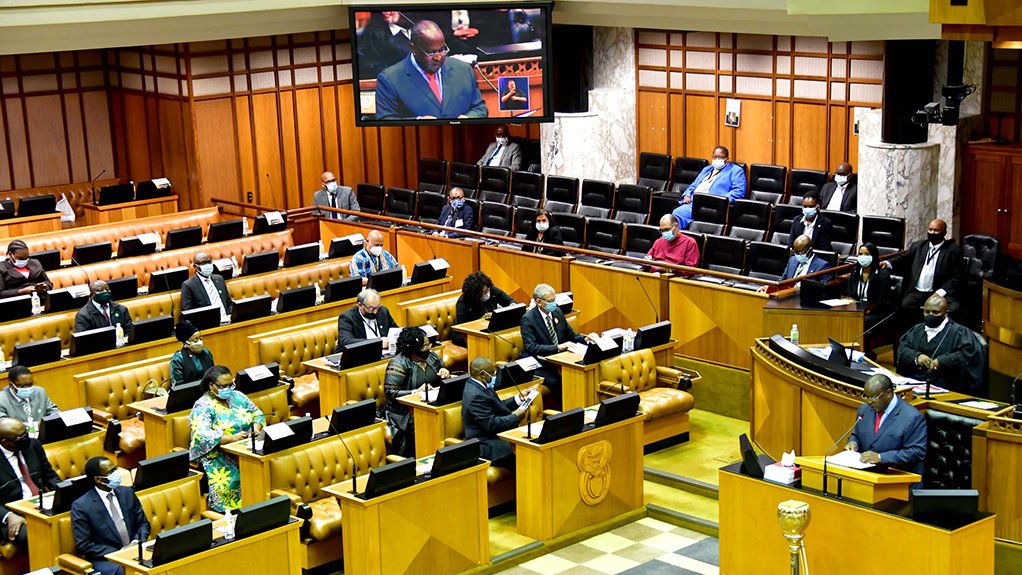Accounting firm PKF says one positive aspect to the delay in tabling the Budget speech, to March 12, is that stakeholders will know the Budget is approved at Cabinet level before its tabling.
With the African National Congress (ANC) and the Democratic Alliance having been forced into an “unholy matrimony” in a Government of National Unity (GNU) and now differing over fundamentals of South Africa’s tax regime, PKF Durban director Paul Gering hopes that the GNU will remain, since it is benefitting South Africans.
The GNU has introduced an opportunity for better planning and consultation, he adds.
“The ANC seems to have forgotten the cornerstone of our Constitutional democracy, that is the Freedom Charter, which takes into account the will of the people, which is not a value-added tax (VAT) increase [of two percentage points to 17%] but better use of the funds that government can already garnish, towards better service delivery,” Gering states.
He points out that the deferred Budget is not an African or South African problem, there are in fact Group of 20 countries that have fundamental issues with the passing of their Budgets where there are coalition governments.
Gering cites Germany and France as examples, with Germany having to hold an election on February 23 as a consequence of the inability to pass a Budget and France having experienced a collapse in government for the same reason.
“When the Minister finally does deliver the Budget on March 12, he will have to look in more detail at the issue of political uncertainty, considering that there are local and international issues as a result of conflict throughout the world and the inherent possibility that the world is on the brink of a third world war,” Gering explains.
He also expresses concern about an apparent turf battle between the South African Revenue Service (Sars) and National Treasury, particularly since Sars continues to “attack” vital job creation programmes, such as the Youth Employment Service and the Unemployment Insurance Fund’s job creation fund – as Presidential bulk stimuli of employment – with audits.
Further, Gering hints at the possibility of South Africa remaining on the Financial Action Task Force grey list until October, which may be delayed further owing to the delayed Budget and resultant funding delays.
There is also uncertainty over whether money launderers will actually be prosecuted.
“Are we as a country at odds yet with the fact that we need to make disclosures of ultimate beneficial ownership?” he questions, citing another example as being Sars having discovered that 213 000 people had been under-disclosing their income as more claims from the two-pot retirement system have come through.
About 2.7-million companies and nonprofit organisations are earmarked for losing their tax status and registration owing to noncompliance to disclosure, including on beneficial ownership.
Another elephant in the room, Gering explains, is that of government’s wasteful expenditure, which he estimates added up to R1.5-billion during Cyril Ramaphosa’s last term and is still no closer to resolution. Should this be addressed, it could help avoid a VAT increase and get South Africa off the grey list.
One of the issues is on procurement and losses in procurement at municipal level, which fortunately is now in court, with rulings having allowed for persons to be held responsible for wasteful expenditure.
“We need an expenditure cap. We have inflation targeting but no debt ceiling. South Africa’s yearly interest payments currently exceed R300-billion, while 30% of people are on grants, which are both unsustainable,” Gering says.
There is also the issue of the tax gap which had already been estimated at R30-billion in 1994, owing to illicit trade and South Africa’s major cash market. “There is money out there that needs to be regularised,” Gering notes.
PKF Durban director Paul Gering spoke during a discussion following the postponement of the Budget tabling, on February 20.
EMAIL THIS ARTICLE SAVE THIS ARTICLE ARTICLE ENQUIRY FEEDBACK
To subscribe email subscriptions@creamermedia.co.za or click here
To advertise email advertising@creamermedia.co.za or click here











